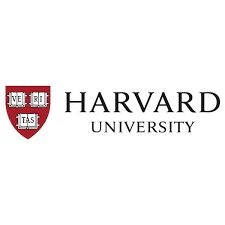Since its establishment in 1636, Harvard University has stood as a symbol of intellectual prowess and academic excellence. With a rich history spanning centuries, Harvard has evolved into one of the world’s leading research universities, renowned for its distinguished faculty, groundbreaking research, and unwavering commitment to excellence in education.Harvard University: Pioneering Excellence in Education & Research This article delves into the illustrious legacy, academic offerings, research endeavors, and cultural significance of Harvard University.
A Legacy of Excellence
Founded in Cambridge, Massachusetts, Harvard University holds the distinction of being the oldest institution of higher learning in the United States. Established under the guidance of Puritan clergyman John Harvard, the university initially served as a seminary to educate ministers. Over time, it expanded its scope to encompass a wide range of disciplines, cementing its reputation as a bastion of knowledge and learning.

Academic Offerings
Harvard University offers a comprehensive array of academic programs across various disciplines, including arts and humanities, social sciences, natural sciences, engineering, business, law, medicine, and public health. The university’s distinguished faculty comprises world-renowned scholars, researchers, and practitioners who are leaders in their respective fields. Through rigorous coursework, hands-on research opportunities, and interdisciplinary collaboration, Harvard equips students with the knowledge, skills, and critical thinking abilities necessary to thrive in an ever-changing world.

Research Endeavors
At Harvard University, research is not just a pursuit but a way of life. The university is home to numerous research centers, institutes, and laboratories dedicated to advancing knowledge and addressing society’s most pressing challenges. From groundbreaking discoveries in medicine and biotechnology to innovative solutions in environmental sustainability and social justice, Harvard’s research efforts have a profound impact on the world. The university’s commitment to interdisciplinary collaboration fosters innovation and creativity, leading to transformative breakthroughs that shape the course of history.
Cultural Significance
Beyond its academic and research endeavors, Harvard University holds immense cultural significance as an institution that embodies the ideals of intellectual curiosity, innovation, and leadership. Its iconic campus, with its historic buildings and lush green spaces, serves as a beacon of learning and enlightenment. Harvard’s alumni network includes Nobel laureates, Pulitzer Prize winners, heads of state, business leaders, and cultural luminaries who have made indelible contributions to society. The university’s cultural impact extends far beyond the confines of its campus, influencing discourse, policy, and progress on a global scale.
Diversity and Inclusion
Harvard University is committed to fostering a diverse and inclusive community where individuals from all backgrounds feel welcome, valued, and empowered to succeed. Through initiatives aimed at promoting diversity, equity, and inclusion, Harvard seeks to create a campus environment that reflects the rich tapestry of human experiences and perspectives. By embracing diversity in all its forms, Harvard cultivates a vibrant intellectual community where ideas are challenged, perspectives are broadened, and meaningful connections are forged.
**Frequently Asked Questions about Harvard University: Pioneering Excellence in Education & Research**
**1. What makes Harvard University a pioneer in education and research?**
– Harvard University has a long-standing reputation for excellence in both education and research. Its distinguished faculty, innovative programs, and commitment to pushing the boundaries of knowledge have solidified its position as a leader in the field.
**2. What academic programs does Harvard University offer?**
– Harvard University offers a wide range of academic programs across various disciplines, including arts and humanities, social sciences, natural sciences, engineering, business, law, medicine, and public health. Its diverse offerings cater to a broad spectrum of interests and career goals.
**3. How does Harvard University support research initiatives?**
– Harvard University provides extensive support for research initiatives through its numerous research centers, institutes, and laboratories. Faculty and students have access to state-of-the-art facilities, funding opportunities, and collaborative networks to pursue groundbreaking research in their respective fields.
**4. What is the history of Harvard University’s excellence in education and research?**
– Founded in 1636, Harvard University has a rich history of academic excellence and research innovation. Over the centuries, it has produced countless scholars, leaders, and innovators who have made significant contributions to their respective fields and to society as a whole.
**5. How does Harvard University foster a culture of innovation and leadership?**
– Harvard University fosters a culture of innovation and leadership through its rigorous academic programs, interdisciplinary collaboration, and emphasis on critical thinking and problem-solving. Students are encouraged to explore new ideas, challenge conventional wisdom, and become agents of positive change in the world.
**6. What opportunities are available for students at Harvard University?**
– Harvard University offers students a wealth of opportunities for academic and personal growth, including internships, research projects, study abroad programs, extracurricular activities, and community engagement initiatives. Its vibrant campus life ensures that students have access to a wide range of experiences beyond the classroom.
**7. How diverse is the student body at Harvard University?**
– Harvard University is committed to diversity and inclusion, with a student body that reflects a wide range of backgrounds, experiences, and perspectives. The university actively seeks to create a welcoming and inclusive campus environment where all students feel valued and empowered to succeed.
**8. What is the admissions process like for Harvard University?**
– The admissions process for Harvard University is highly competitive, with rigorous academic standards and holistic evaluation criteria. Prospective students are evaluated based on their academic achievements, extracurricular involvement, personal essays, letters of recommendation, and standardized test scores.
**9. What resources are available for faculty and researchers at Harvard University?**
– Harvard University provides extensive support for faculty and researchers, including access to funding, professional development opportunities, research facilities, and collaborative networks. The university encourages faculty to pursue innovative research projects that have the potential to make a meaningful impact on society.
**10. What impact has Harvard University had on society?**
– Harvard University has had a profound impact on society through its contributions to education, research, policy, and innovation. Its alumni include Nobel laureates, Pulitzer Prize winners, heads of state, business leaders, and cultural icons who have made significant contributions to their respective fields and to the world at large.
Conclusion
In conclusion, Harvard University stands as a beacon of knowledge and excellence, embodying the transformative power of education, research, and innovation. With a legacy dating back centuries, a comprehensive array of academic offerings, groundbreaking research endeavors, and a commitment to diversity and inclusion, Harvard continues to shape the future of education and make a lasting impact on societyHarvard University: Pioneering Excellence in Education & Research. As we look to the future, Harvard remains dedicated to its mission of advancing knowledge, inspiring leadership, and fostering positive change in the world.
